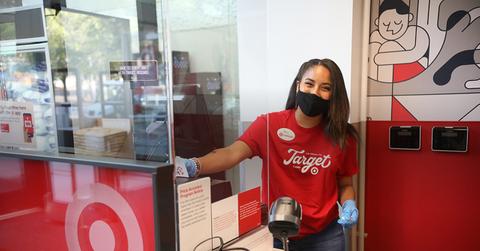Earned Wage Access: Modern Payment Model, Explained
A modern payment model called earned wage access is taking over the retail sector. What is it and how is it different from a regular paycheck?
Aug. 18 2022, Published 2:05 p.m. ET
Sending employees a paycheck every other week may not be a lasting norm, at least in the retail industry. Major companies like Target, Walmart, and McDonald’s are shifting the conversation to something called EWA (earned wage access) as a way to attract workers.
EWA offers daily or on-demand pay, something that makes it different from regular paychecks that require you to wait until the end of the pay cycle to receive your money.
Earned wages are becoming more popular in the retail sector.
Bi-weekly pay is the most common form of payment in the U.S., but EWA is rising in popularity. In 2020, $9.5 billion in income went through EWA.
Earned wages mark a shift in lower-paying retail jobs that make it difficult to last until payday. EWA doesn’t solve the problem of having more money, but it could make a worker’s life easier by eliminating late payments for bills, simplifying expense planning, and more.
Senior program manager of small dollar, marketplace, and installment lending at the Consumer Finance Protection Bureau (CFPB) Laura Udis says, “There are some very large employers that have signed on to wage access like Walmart, and some Target and McDonald’s [locations].”
Earned wage vs. regular paychecks: What’s the difference?
Workers typically receive paychecks on a regular cadence. This paycheck covers the work they have completed in the previous two weeks (or other frequency).
EWA, or on-demand pay, works differently. It allows workers to request payment for work they’ve already completed, regardless of the schedule. For example, a worker may choose to receive their pay at the end of each shift, twice a week, weekly, or any other timeframe that works for them.
Will earned wage take over?
According to EWA facilitator DailyPay, employee retention increases by 24 percent when switching from bi-weekly paychecks to EWA.
Despite this, EWA still has its critics. Nelson Lichtenstein, director of the Center for the Study of Work, Labor, and Democracy at UC Santa Barbara, says, “I think, ultimately, it’s another form of payday lending.”
But EWA doesn't act as credit, even if its implications can be similar in some circumstances. The Truth in Lending Act segments EWA from credit as long as it meets certain conditions. According to the CFPB, one such requirement for compliant EWA is: “The amount of each covered EWA transaction does not exceed the accrued cash value of the wages the employee has earned up to the date and time of the transaction.”
Also, employees can't pay to access EWA funds, and companies can't seek debt collection for any EWA funds.
There are risks to getting money out early, but it isn't up to corporations to monitor employee spending. Adult workers have the right to choose how to use their money, and employers aren't the ones who bear the brunt of that responsibility. Allowing a company to retain your paycheck for a longer period of time only serves to pad their cash flow with money that doesn't belong to them.
Even with EWA, wage transparency and equity is a continuing conversation and one that companies — including major retail corporations — must continue to listen to.


